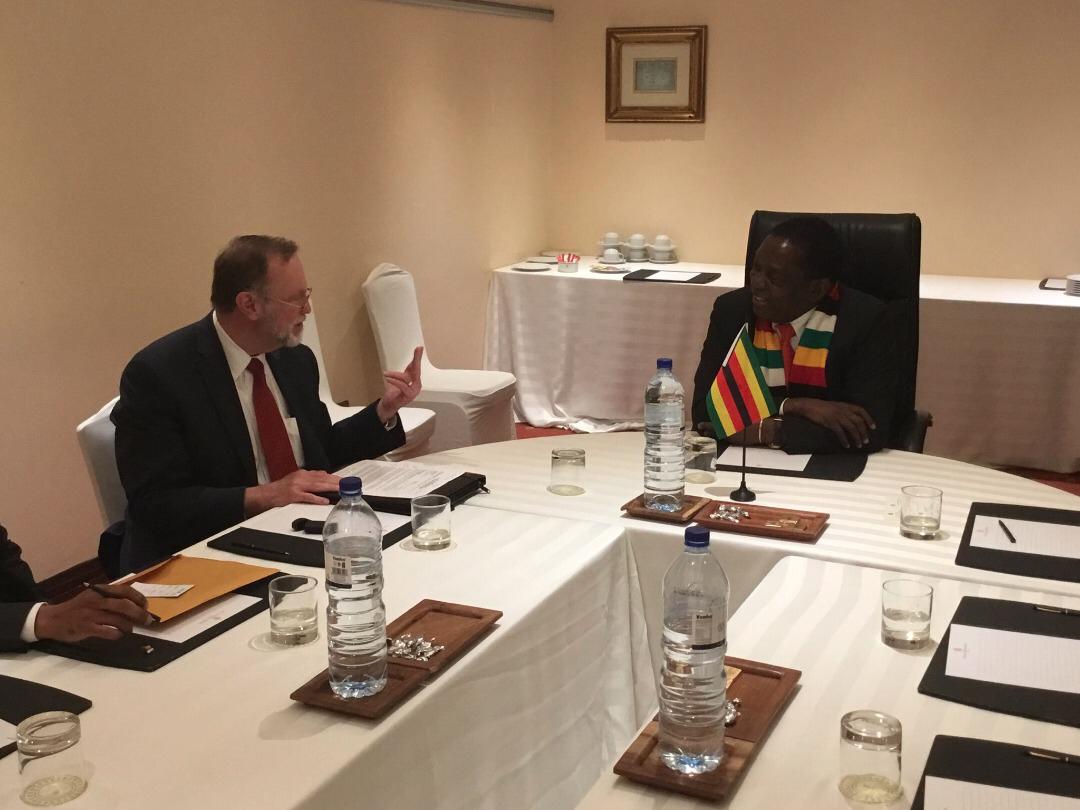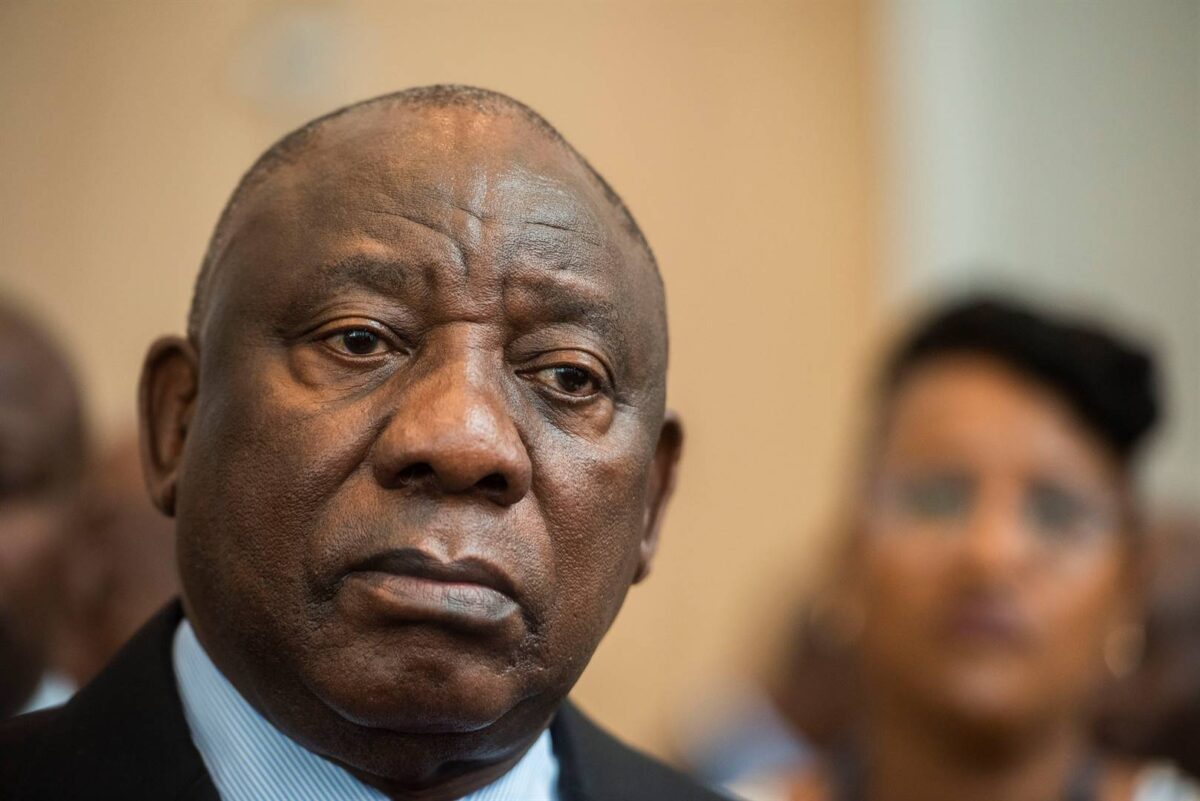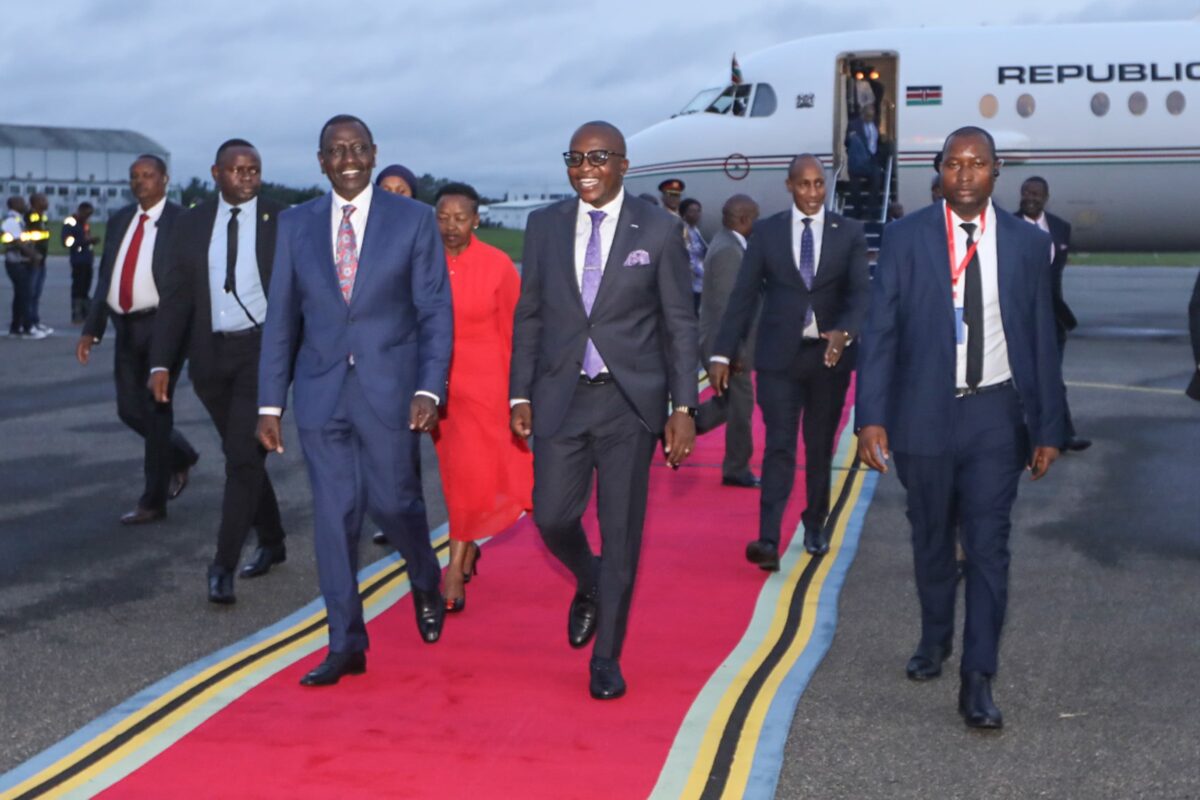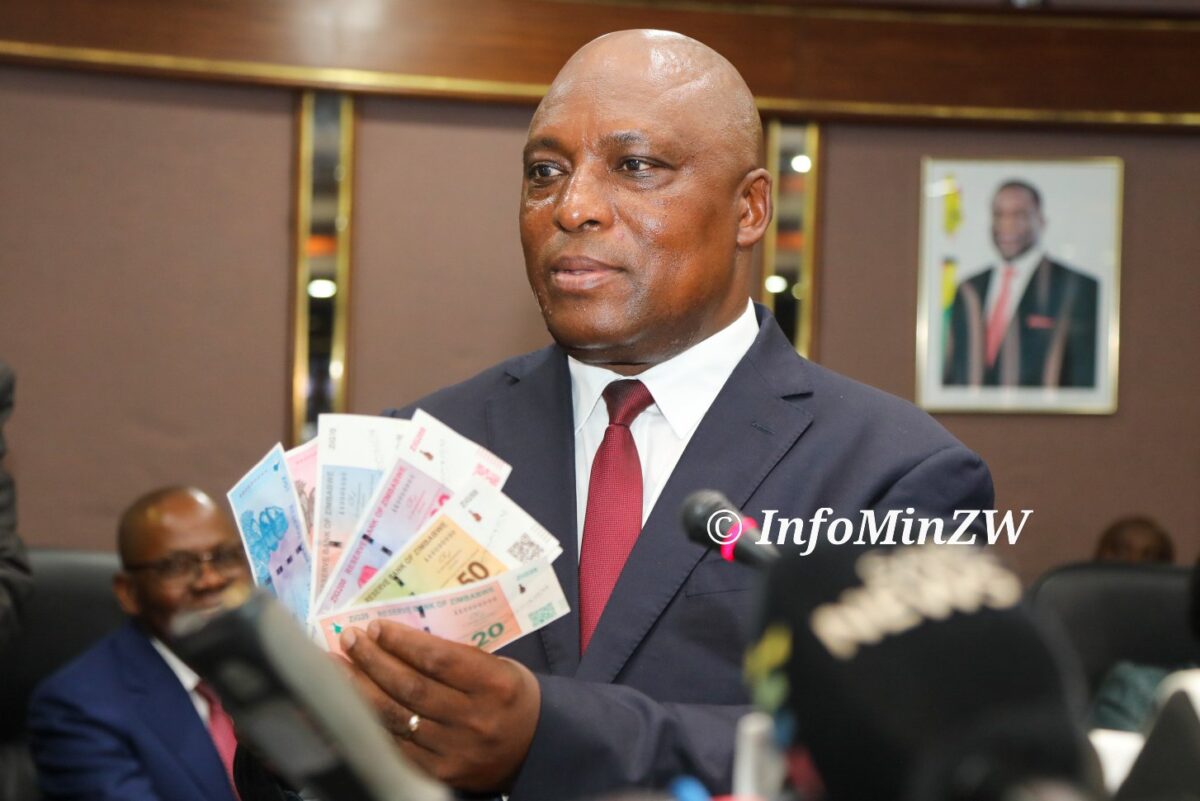HARARE – The United States’ top diplomat on Africa has told Zimbabwe’s President Emmerson Mnangagwa to bring soldiers responsible for civilian deaths during protests in August last year and January this year before a court.
Mnangagwa’s officials had hailed Wednesday’s audience with Assistant Secretary of State for African Affairs, Tibor Nagy, as a breakthrough in US and Zimbabwe diplomatic relations, although the men were meeting for a second time following the UN General Assembly last September.
Nagy met Mnangagwa on the sidelines of the United States-Africa Business Summit which ends on Friday in Maputo, Mozambique.
Mnangagwa made a pitch asking the United States to lift sanctions. He told the US diplomat that his government was pressing ahead with key legislative reforms to align laws with the constitution which would enhance protections for individual freedoms.
Zimbabwean officials also raised concerns over a US$350 million fine imposed on the Commercial Bank of Zimbabwe for US sanctions breaches.
“It is our largest bank and perhaps we need some assistance if they have to pay that amount of money, it’s a lot of money,” finance minister Mthuli Ncube said after the meeting.
Nagy had initially declined to share what was discussed shortly after the meeting, telling journalists: “We discussed a full range of issues between our countries, but you can ask His Excellency the Ambassador over there.”
But he later tweeted: “I met with Zimbabwean President Mnangagwa today. I stressed the urgent need to hold security forces accountable for acts of violence committed against Zimbabweans including in August 2018 and January/February 2019 and the importance of real political and economic reforms.”
Mnangagwa reportedly told Nagy that Zimbabwean police had undergone retraining on handling protests, and he would not be redeploying the army – but crucially made no commitment to hold the individual soldiers responsible for civilian deaths accountable, a key demand of the international community before the normalisation of relations.
Nagy’s tweeted summary of the key US message at the meeting dovetailed with what his deputy, Matthew Harrington, said at the Centre for Strategic and International Studies last month.
Harrington said any goodwill the international community might had have for Mnangagwa’s regime “dissipated” when he deployed soldiers shortly after voting ended in elections last July. The soldiers opened fire on protesters, killing at least six people and wounding 35 others.
The army was deployed again in January this year to quell protests against fuel price increases. Human rights groups say 18 people were killed and over 70 others left nursing gunshot wounds.
Problematic developments, according to Harrington, included the “use of deadly force by the army on August 1st in response to protests and the targeting of opposition supporters by security forces throughout the month of August 2018.”
He added: “In addition, in January and February (2019) the army launched a sustained crackdown on citizens in response to their protests over fuel price increases. We welcome a better relationship with Zimbabwe, but the ball is very much in the Zimbabwean government’s court. If there’s real, concrete progress in the areas laid out in the ZIDERA legislation, Zimbabwe will find a committed partner in the United States.
“The government are saying some of the right things, but it is falling short when it comes to concrete actions.”
The United States passed the Zimbabwe Democracy and Economic Recovery Act in 2001 in response to increasing repression, imposing travel restrictions and asset freezes on over 200 individuals and entities accused of abetting human rights violations. The Zimbabwe government and its supporters claim the unilateral sanctions are “illegal”, and that they have spooked potential investors.
US officials however maintain that the steps that Zimbabwe needs to take to have the sanctions lifted do not require foreign assistance, just a commitment by Zimbabwe’s leaders to change their human rights record.
The steps include the repealing of repressive laws like the Public Order and Security Act and the Access to Information and Protection of Privacy Act; a cessation of the use of the army to harass and intimidate citizens and holding accountable members of the security services behind the killings of protesters.
“Those simple actions would send a strong signal to Zimbabweans and the international community that Zimbabwe is on a very different path and genuinely committed to embracing democratic institutions and values, and to becoming a more responsible member of the international community. And not one of those steps, I would point out, requires outside assistance. The government could take any one of them today. The fact that it has chosen not to do so raises questions about the genuineness of its commitment to put the country on a much different trajectory,” Harrington said.















